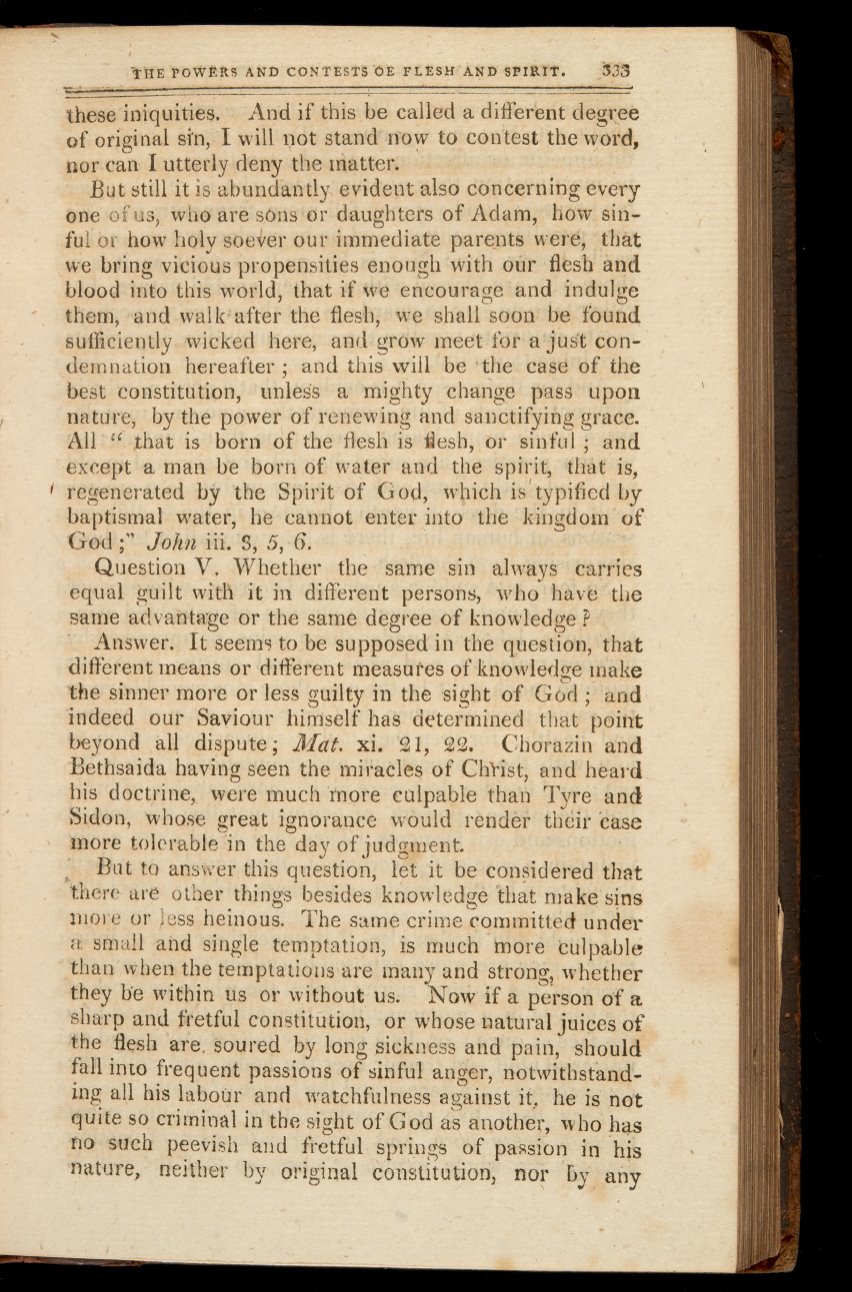

TESE
POWERS
AND
CONTESTS
OE
FLESH'AND
SPIïtIT.
.333
these iniquities.
And
if
this be
called a different degree
of
original
sin,
I
will
not
stand'
now to
contest
the
word,
nor can
I
utterly
deny the
matter.
But still it
is
abundantly
evident
also
concerning
every
one
of
us,
who
are
sóns
or daughters
of
Adam,
how
sin-
ful
or
how
holy soever
our
immediate
parents
were,
that
we
bring
vicious
propensities enough
with
our
flesh
and
blood into this
world, that if
we
encourage and indulge
them,
and
walk
after
the
flesh, we
shall
soon
be
found
sufficiently
wicked here,
and
grow
meet
for
a
just
con-
demnation hereafter
;
and
this
will
be
the
case
of
the
best constitution,
unless
a
mighty change pass
upon
nature,
by
the
power
of
renewing
and
sanctifying
grace.
All
"
that
is
born
of
the
flesh
is flesh,
or
sinful
;
and
except
a
man be born
of
water
and
the
spirit,
that
is,
regenerated
by
the
Spirit of God,
which
is'typified
by
baptismal water,
he
cannot enter
into the kingdom'
of
God
;"
John
iii.
3,
5,
6.
Question V.
Whether
the same
sin
always
carries
equal guilt
with
it
in different persons, who have
the
same advantage or the
same
degree
of
knowledge
r
Answer.
It
seems
to
be
supposed
in
the question,
that
different means
or
different measures
of
knowledge make
the
sinner more or
less
guilty in the sight
of
God
;
and
indeed our Saviour himself
has determined
that
point
beyond
all
dispute
;
Mat.
xi.
'21,
22.
Chorazin
and
Bethsaida
having seen the miracles
of
Ch' -ist,
and
heard
his
doctrine,
were
much more culpable than
Tyre
and
Sidon, whose
great ignorance
would
render their
'case
more tolerable
'in
the day
of
judgment.
But
to
answer this
question, let it
be
considered
that
there are
other
things besides
knowledge
that
make sins
more or
less
heinous.
The
same crime
committed
under
a
small
and
single
temptation,
is
much
more culpable
than
when
the temptations are
many
and
strong;
whether
they
be
within
us
or without
us.
Now
if
a
person
of a
sharp and fretful constitution,
or
whose
natural juices
of
the
flesh
are,
soured
by
long
sickness
and
pain,
should
fall
into
frequent
passions
of
sinful anger,
notwithstand-
ing all
his
laboùr and
watchfulness against
it,
he
is
not
quite
so
criminal
in
the sight
of
God
as
another,
who
has
na
such
peevish
and fretful springs
of
passion
in
his
nature, neither
by
original constitution,
nor
by
any

















